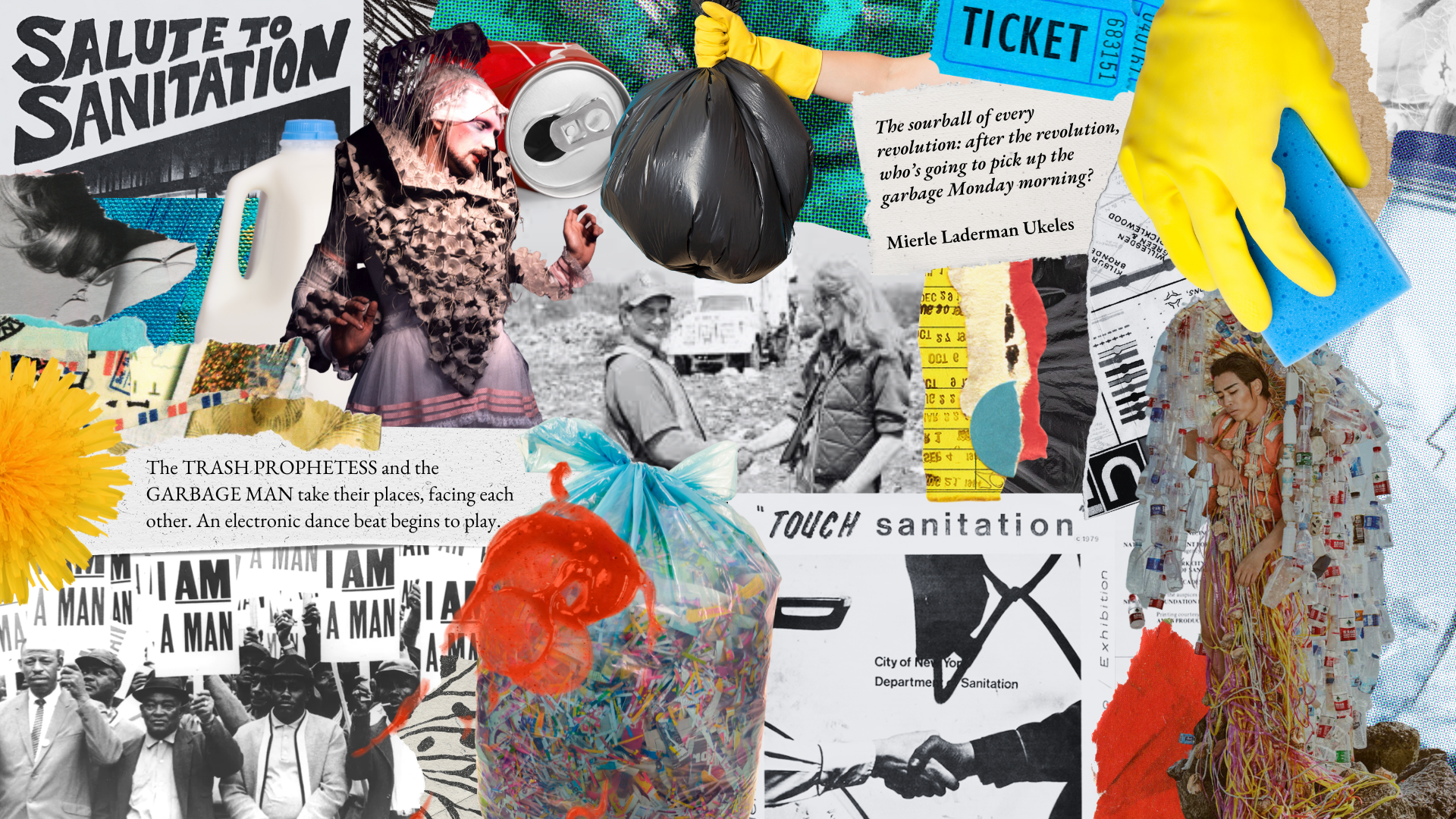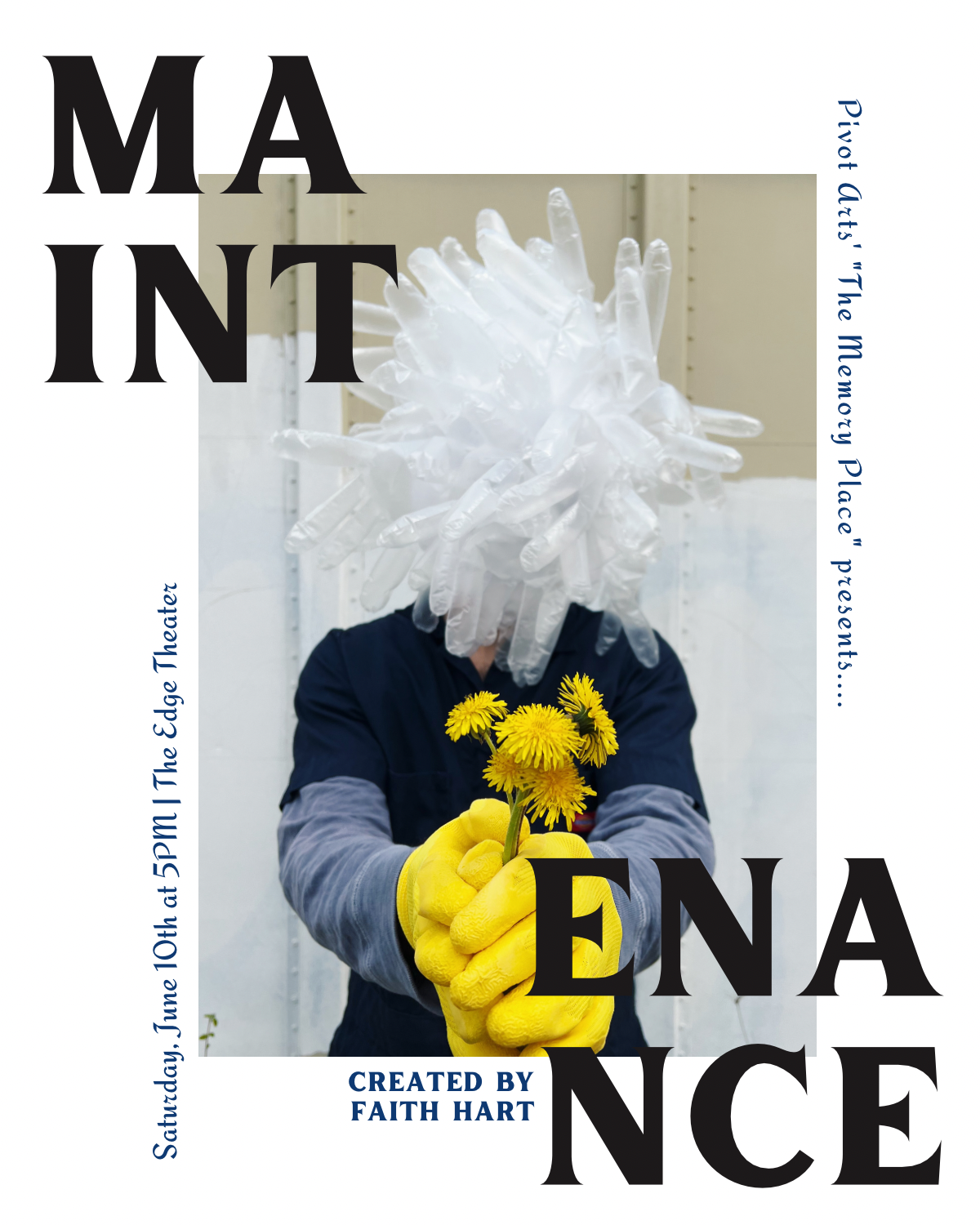
MAINTENANCE
MAINTENANCE is a site-specific walking tour and narrative experience centering the untold stories and labor of sanitation workers. this performance examines the very notion of disposability, spurring consciousness around our responsibility for the waste we create and those who maintain it. audiences are invited to follow the route of GARBAGE MAN–a composite of many real sanitation workers from adapted source texts–and TRASH PROPHETESS, an ethereal oracle who accompanies him along the way. this piece heavily features the manifestos of Mierle Laderman Ukeles.
director’s note
in her New York Times feature of the American home death movement “The Movement to Bring Death Closer”, Maggie Jones writes, “If death practices reveal a culture’s values, we choose convenience, outsourcing, an aversion to knowing and seeing too much.” this conviction has tendrils that touch so many other facets of modern life: our empirically ineffective criminal justice system that equates justice + safety with an “out-of-sight, out-of-mind” approach, the hyper-medicalization of death + funeral industry, and the climate crisis being just three immediate examples in my mind.
while it’s now a relatively unquestioned fact of life, the sanitation system as we know it today was not established until the late 1800s. in the mid 20th century post-war economic boom, corporations invented the modern notion of disposability and single-use waste to sell more products and cement their market relevance. never before had products been explicitly designed to be discarded.
throughout the process of creating MAINTENANCE, I’ve become haunted by an image of myself, standing atop a pile of everything I’ve ever thrown away. I wonder how my consumption would change if I was viscerally confronted with what is already true: that almost everything I purchase will outlive me. through theatre we attempt to make visible the invisible. we map our interconnectedness. we remember there were times before this + we imagine new ways of being. we twirl with questions even if we have no answers. we see what around us is invented + try to invent something better.
I have a million questions. who and what have we discarded? what responsibilities have we outsourced for the sake of convenience and is there a cost? would we be willing to forfeit that convenience for a healthier, more just world? how do we reconcile our waste? whose sacrifices make our comfort possible? how do we shift our culture's values to honor + re-dignify the labor of those who make the gears of the world turn?
I'm deeply grateful for the incubator of Pivot Arts and for The Memory Place's work around cultural memory. MAINTENANCE aims not only to preserve cultural memory as it relates to the history of sanitation, but also to create a current sense of memory that acknowledges the labor always unfolding around us. waste anthropologist Robin Nagle suggests that the idea of disposability reflects a culture’s changed relationship to time— that the caliber of our waste allows us to move at a certain, modern speed. thanks for slowing down with us.



